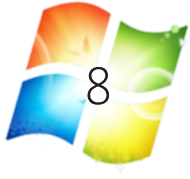What if Windows 8 was touch-input only?


Some would argue that Windows 7 was designed in and around touch capabilities, as the operating system finally included multi-touch technology which Microsoft had perfected since the "Longhorn" days.
With the Ribbon being integrated into most common programs and the operating system being designed for finger-input, you can tell Microsoft has made a significant push on the touch-screen user.
Bearing this in mind, could the next wave of operating systems - "Windows 8" specifically, expected to be released in 2011 which by then anything could go, be based on a touch-only interface?
(And of course, I say Windows because I have yet to visit or experience an office or university environment which has a network of over 25 non-Windows machines. It just doesn't happen).
Mary Jo Foley already has a snapshot of what we can expect in Windows 8 but it doesn't really tell us about what the hardware will be; the hardware will most likely be out of Microsoft's hands, unless they decide to make specific devices for their own operating system like Apple do with the Mac.
Because technology is moving forwards so quickly, it is difficult to determine what the next generation operating system could even support, let alone take advantage of. Windows 7 is lucky to have multi-touch support because another six-month delay to the multi-touch technology and it may not be supported in it at all.
As with Pandora's Box theory, once it is out there in the world, you cannot take it back. Touch is most certainly a viable way of data input and will never leave post-modern operating systems. It first arrived in Windows XP and since then has grown from strength to strength; perhaps not as much as people first thought, however.
Who knows, really? By 2011, the success of the "Courier" tablet, the hardware touch-screen device which Microsoft are developing, could prove so popular that the entire concept of mobile hardware could change entirely. Perhaps the death of the laptop can be seen upon the horizon?
Of course, with their other supposed prototype, "Codex", which works as a dual-screen journal-like touch device which allows multiple positioning and adjusting, using a Filofax-type device with electronic functionality is sociologically interesting on multiple levels. It is as if we are oxymoronically regressing yet progressing by holding onto a relic of the past only to develop into an electronic device which encourages better collaboration and productivity.
The video is here, but be sure to hold on for the initial conversation in the first scenario; the most uncomfortable, scripted and blatantly obvious acting is about 40 seconds in.
Touch technology is steadily improving and has even twisted my arm round to a touch-way-of-thinking. It is interesting to see what's next and how viable touch will be. However I cannot get over the thought of working in the university library with a single touch-screen monitor and no keyboard, tapping on a hard surface as I write one of my criminology essays.
The keyboard, as in line with Pandora's box theory, is out and serves its purpose well. It is a technology which has struggled to be improved over the course of the last three decades because it does exactly what it needs to. Besides the ergonomic design of these methods of input, the technology works. If it isn't broken, why fix it?
As for data input in the next version of Windows, or any future operating system for that matter, touch will still be in second place to the keyboard, no doubt.